I usually don’t luggage test two-row midsize SUVs like the Jeep Grand Cherokee since they’re so obviously big enough to hold all six of the standard luggage test bags. I then tend to run out of extra stuff in the garage to fill in the gaps.
That said, I’ve previously tested a Toyota 4Runner, which is the Grand Cherokee’s closest competitor in spirit in terms of price tag and general mission of being a family-friendly off-roader. They’re obviously wildly different, but I still thought it would be interesting to see how they compare in terms of cargo space.
The specs say the Jeep Grand Cherokee has 37.7 cubic-feet of space behind its raised back seat, which is comparable to the biggest compact SUVs. The testing you’re about to see will show that the amount of stuff it can carry backs that up. Oh, and the 4Runner has 47.2 cubic-feet, so this shouldn’t be close. We’ll see about that, too.
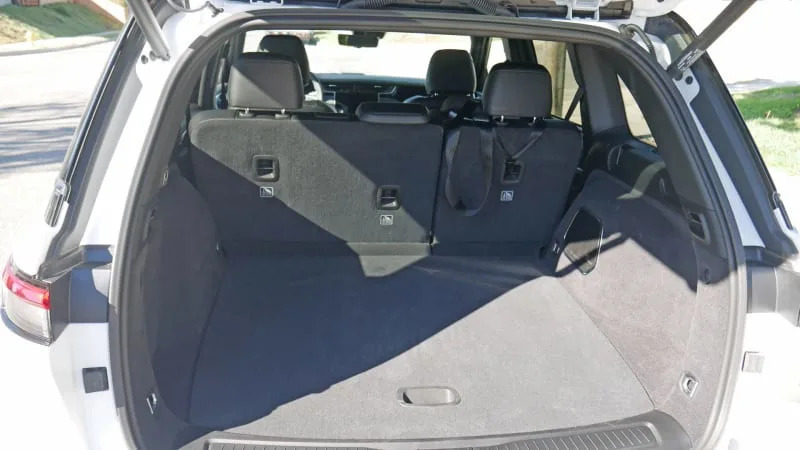
Here is the cargo area. There is no underfloor bonus area, just the full-size spare tire. But that’s a pretty significant inclusion, of course.
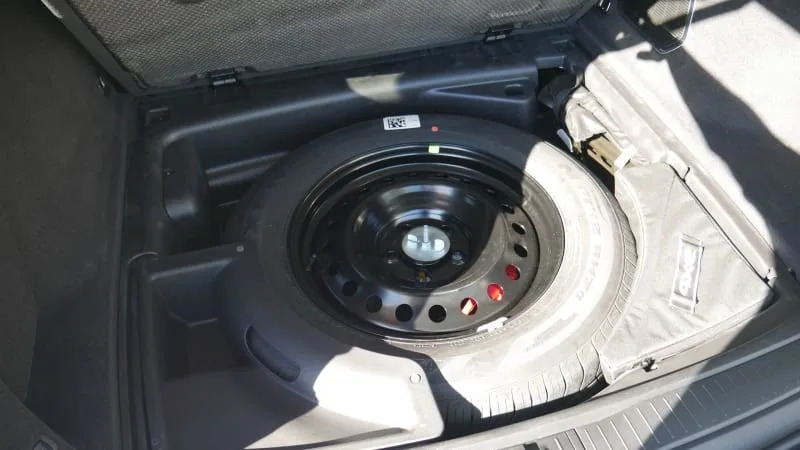
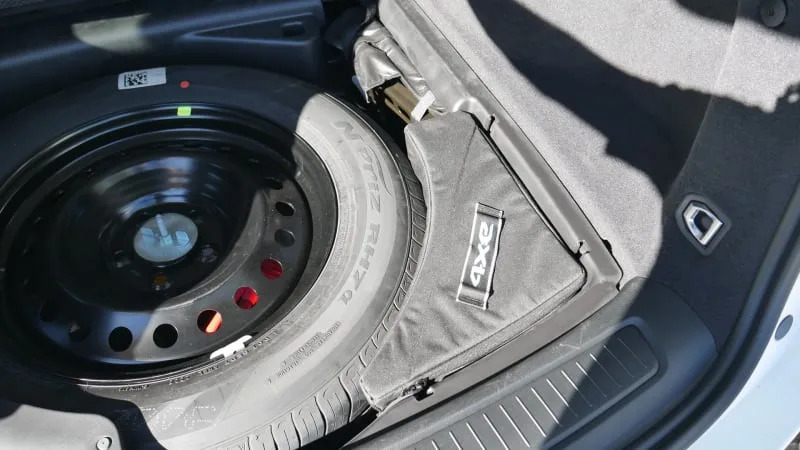
Here is that spare tire, which is a major reason why the Grand Cherokee has a higher load floor than those compact SUVs (the rear-wheel-drive-based platform and off-road gear also contributes) and therefore comparable cargo space despite being bigger outside.
This Grand Cherokee was a plug-in hybrid 4xe, so that little triangle bag is the charge cord. Brilliant packaging here. Usually, charge cords are left to roam free somewhere in the cabin, or more likely, in your garage since they aren’t a necessity in plug-in hybrids.
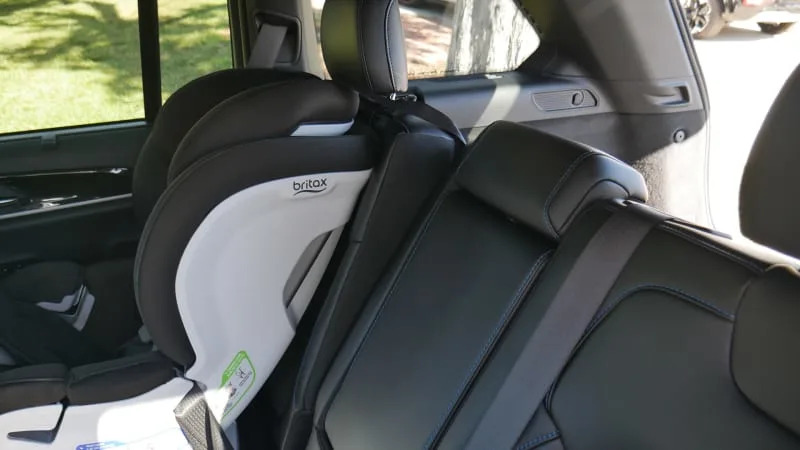
The back seat reclines by quite a bit, which makes for a very comfortable back seat. For this test, I set both sections of the 60/40-split seatback at the same angle as shown with the car seat above.
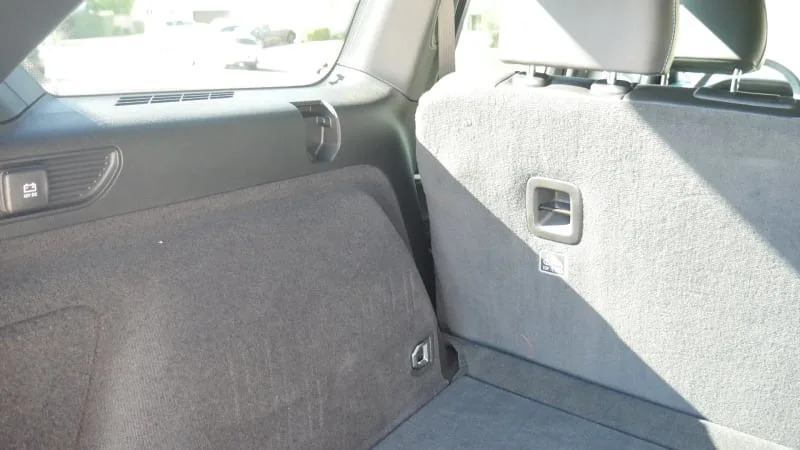
This is yet another SUV that has shown up with its cargo cover, so I couldn’t test to see how much would fit below it.
OK. Onto the bags. As always in every luggage test, I use two midsize roller suitcases that would need to be checked in at the airport (26 inches long, 16 wide, 11 deep), two roll-aboard suitcases that just barely fit in the overhead (24L x 15W x 10D), and one smaller roll-aboard that fits easily (23L x 15W x 10D). I also include my wife’s fancy overnight bag just to spruce things up a bit (21L x 12W x 12D).
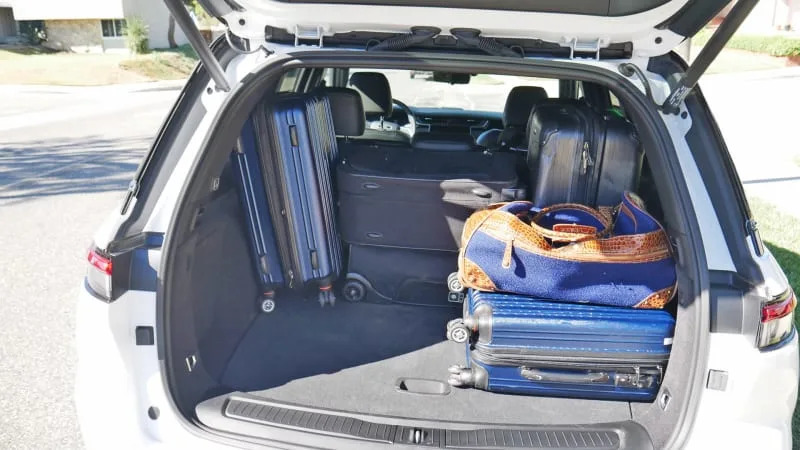
As expected, that was easy. Tons of space left over.
Let’s go to the back up items.
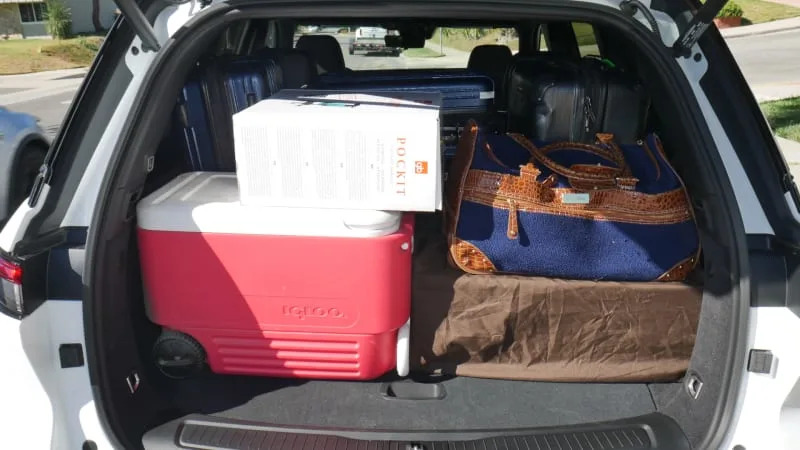
This would be a 38-quart Coleman cooler, a Graco Pack n Play playpen and the box for a Pockit fold-up micro stroller. There also would be enough room leftover for a small backpack … if I knew where the hell it was.
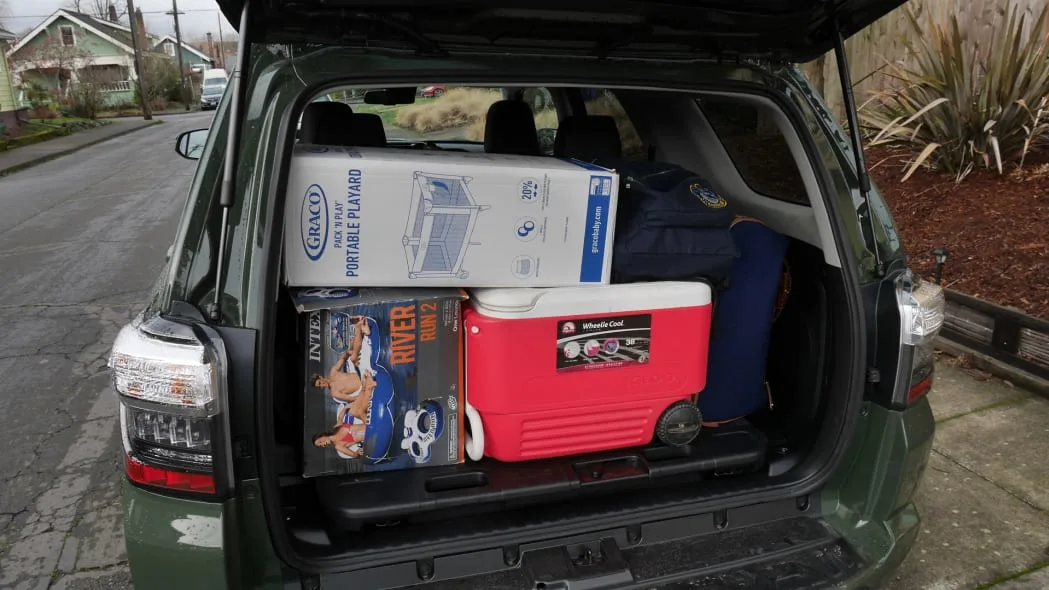
You see, I tried to use those items because they are the exact same ones (or at least the same size in the case of the box) I used for the 4Runner back in early 2020.
As such, the Grand Cherokee can hold the exact same items as the 4Runner. There is a catch, though.

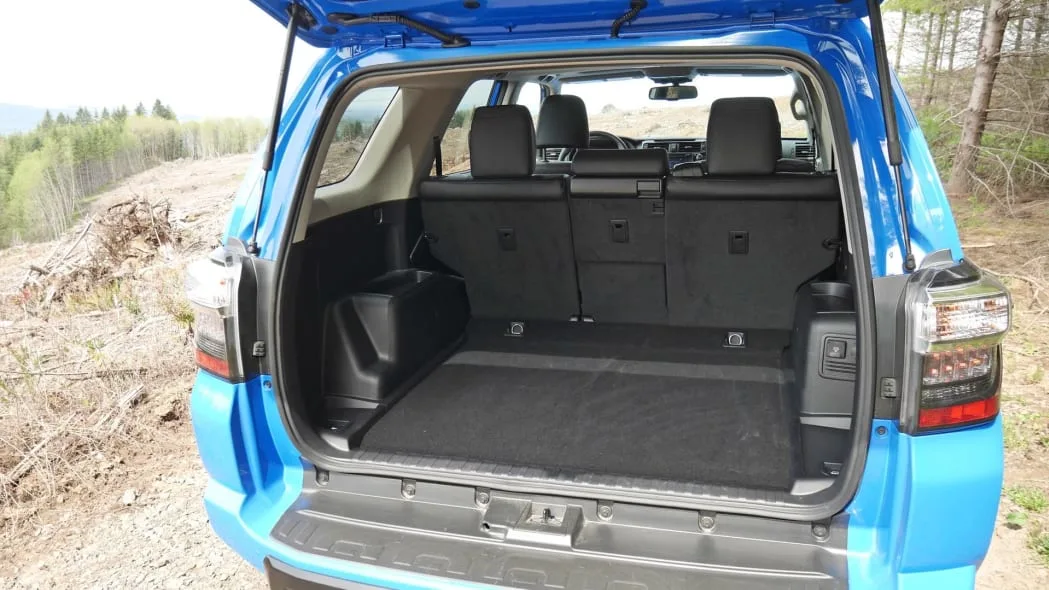
The 4Runner I tested had the roll-out tray option, which, while handy, reduces space considerably. The 4Runner at the right does not have it.
So, the bigger, boxier 4Runner can indeed hold more stuff, but it’s not a massive gap. Also, the amount of bonus stuff is similar to what I needed to fill the Hyundai Tucson, Honda CR-V and Toyota RAV4 with, but it is indeed greater.

